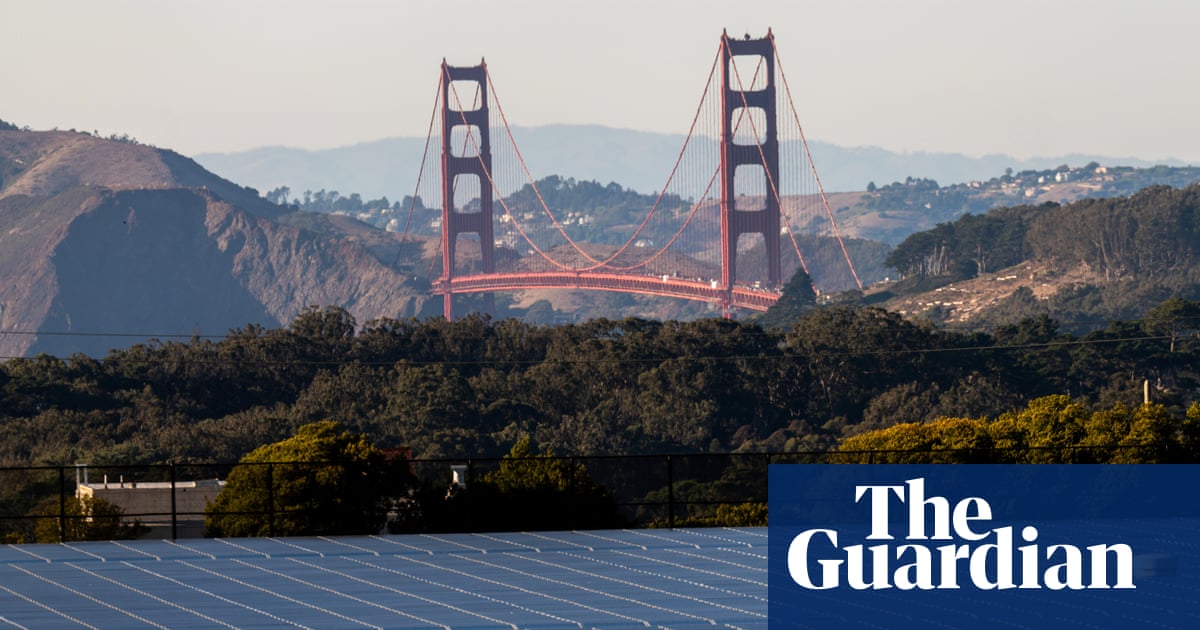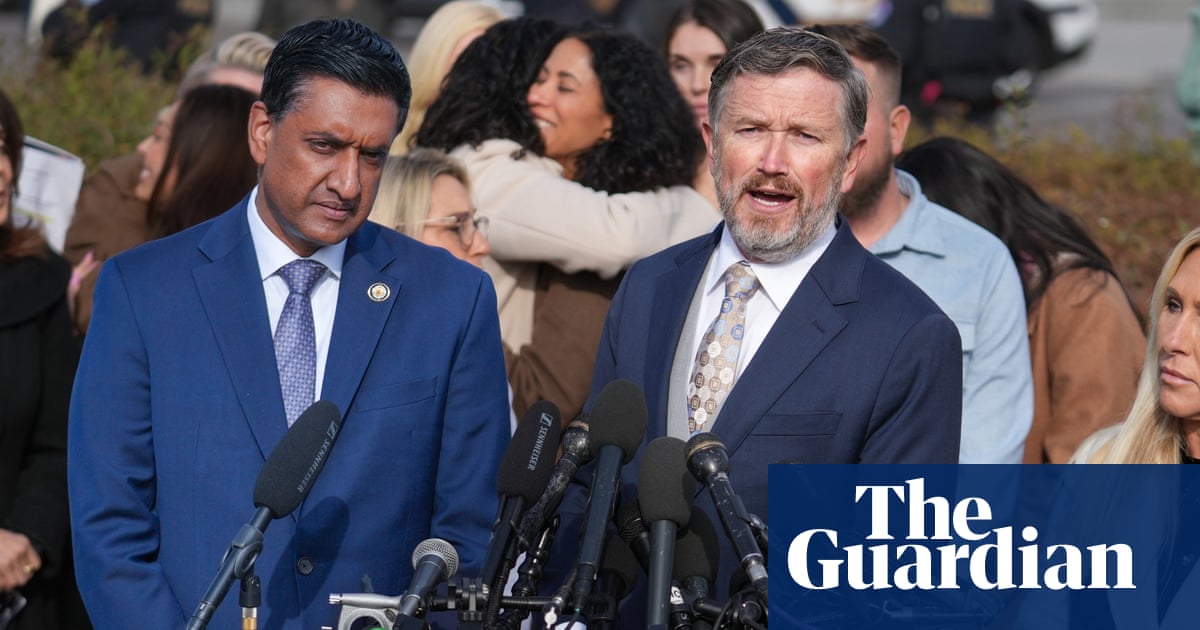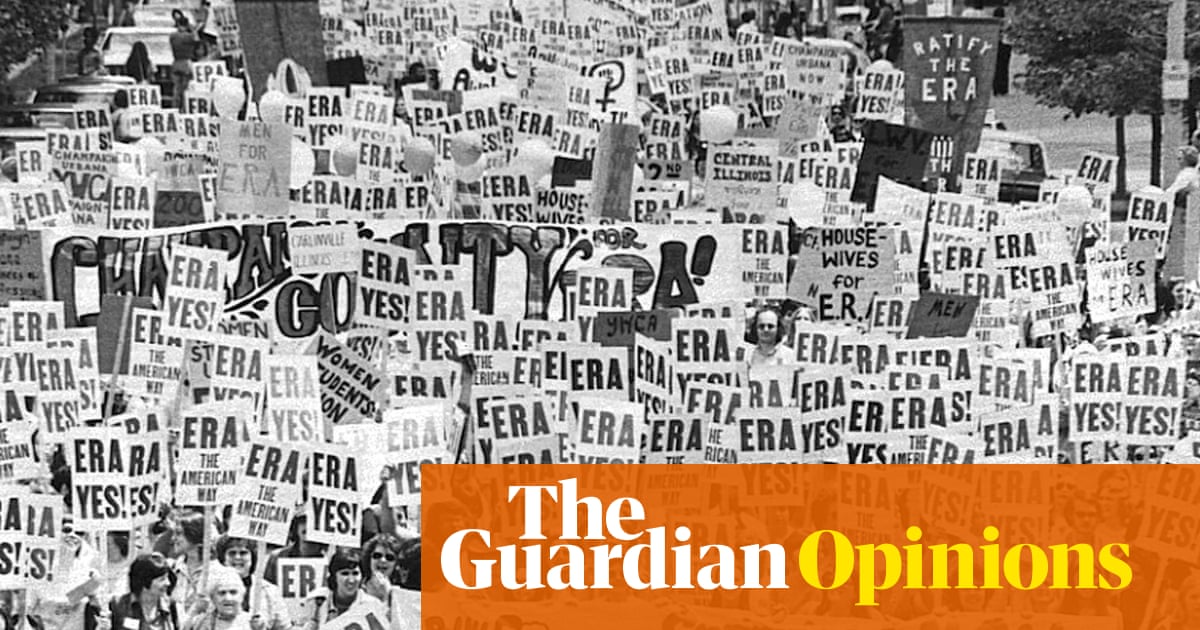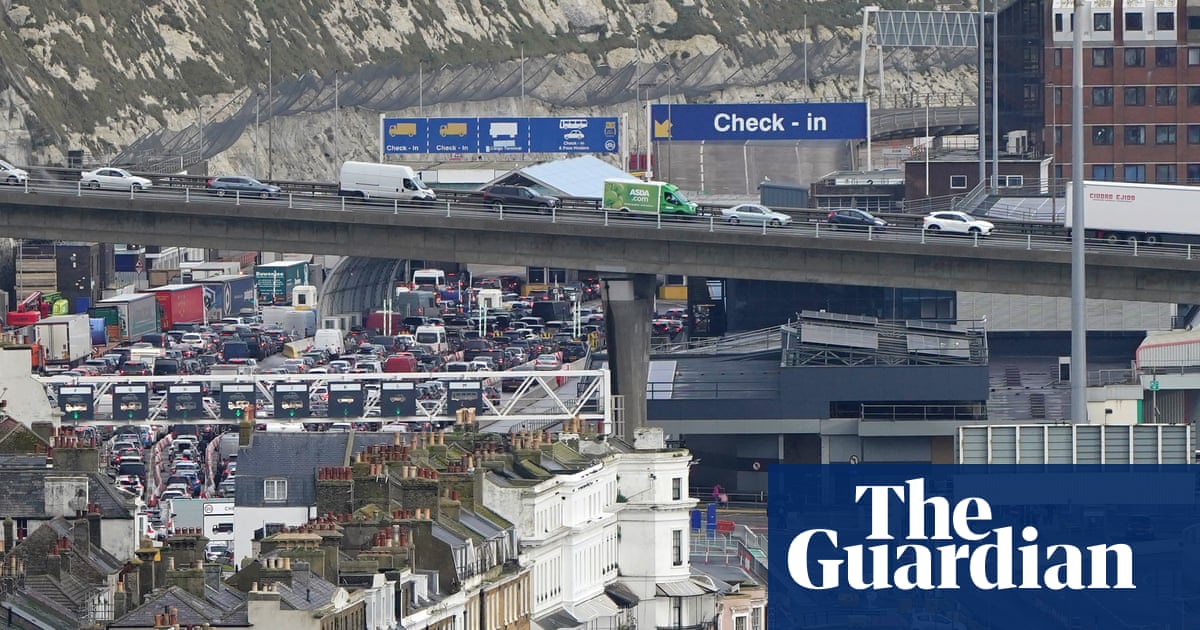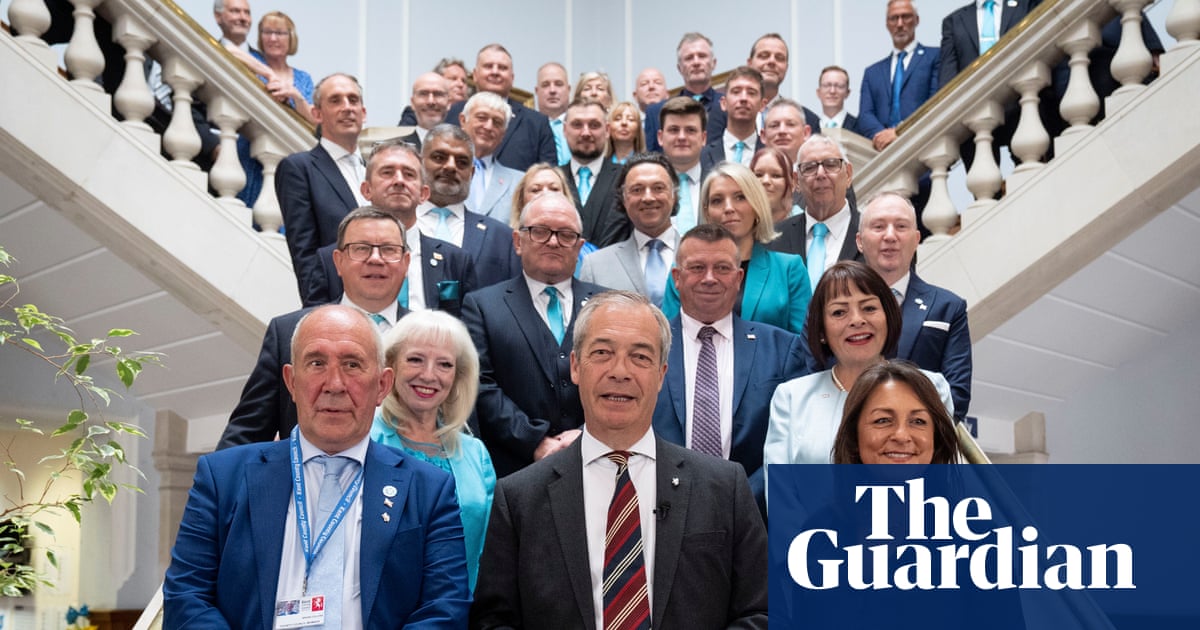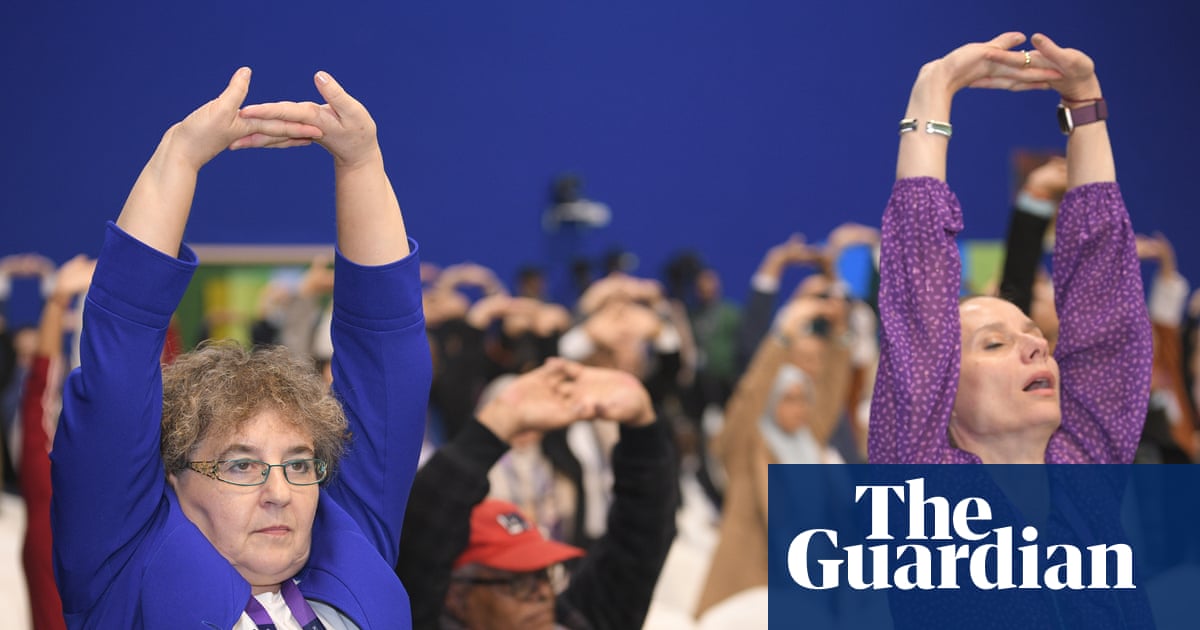A decade ago, just before the Brexit referendum and Donald Trump’s presidential victory over Hillary Clinton started the febrile era we are still stuck in, there was a common understanding of the main way social media messed with our minds – by presenting absurdly idealised versions of people’s lives, and thereby making other human beings miserable.
“We see wild parties, holidays, weddings, family outings and close-knit friendship groups,” wrote one Guardian journalist in 2015. She went on: “Apart from commemorating a deceased person’s life, you’ll be hard pushed to find a really bad moment in your feed.” Here, it seemed, was a modern iteration of the opium always purveyed by free-market capitalism, resulting in a constant stream of personal happiness and precious little recognition of life’s more difficult aspects: social strife, inequality, disagreement.
Of course, users still post impossibly upbeat depictions of who they are and what they do. But for the most part, we now live in a completely different era. A lot of explanations for this centre on what has become the internet’s most rampant kind of content: the short-form video popularised by TikTok, and then spread further by such imitations as Instagram’s Reels and YouTube Shorts. Those innovations have triggered a complete upending of the online world: rather than posts about personal contentment and bliss, as our fingers scroll and swipe, we are now fed a diet of violence, prejudice, damage and social unrest. It is warping our understanding of the world, and rapidly reshaping our politics.
Be in no doubt: this is how the political future is being decided, as the past week has vividly demonstrated. Before his murder, the rightwing US activist Charlie Kirk had amassed more than seven million TikTok followers – and as one US writer put it, the essential story of his assassination was about “an influencer shot to death at a school in front of a crowd of smartphones”. Consider also what happened on Saturday in London – when, after months of rallying cries going out online, an estimated 110,000 people gathered at the instigation of the agitator and influencer known as Tommy Robinson, and were addressed via the internet by Elon Musk.
Aside from the latter’s platform-cum-hellhole X, Robinson (whose real name is Stephen Yaxley-Lennon) has been thrown off most of the big social media platforms. But that actually speaks volumes about how his activities are sustained and boosted by material that works in much more insidious ways. And TikTok – which banned him in April 2020 – is full of it: everyday, mundane-looking content that now provides the mood music to so many countries’ lurch to the right.
In June, the London Review of Books published a superb article by the academic and writer William Davies, referring to this phenomenon as “Faragist TikTok”. He described opening an account and sampling what then poured into his “for you” feed: “Clips of masked men cutting down ultra-low emission zone cameras with angle-grinders. Clips of supermarket shelves displaying inflated new prices. Clips of fights breaking out in the street.” More than anything else, he said, he was presented with footage that constantly conveyed the same flailing fury: “Clips of men and women addressing their phones while sitting in cars or out walking, lamenting the state of ‘Starmer’s Britain’, their words appearing in TikTok’s distinctive pink-highlighted font.”
When I read this, I instantly recognised what he was talking about. On the occasions I had tried to digest what Musk had done to X, scenes of that kind were exactly what I had found. Scrolling through Instagram was sometimes similar. I then did the same thing as Davies and got half-immersed in TikTok (at 55, I had previously assumed it was not for me). Soon enough, what I was expecting materialised: a disused warehouse in Manchester that had been set on fire, a group of hooded youths being arrested by a gaggle of cops, and a crowd of neo-Nazis, marching in front of a union jack and joylessly reciting the chant that echoed around the capital at the weekend: “Keir Starmer is a wanker.”
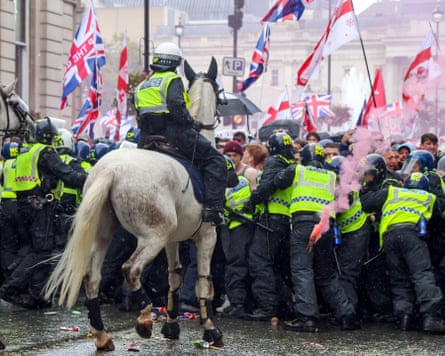
What does this do to people? Where you live might seem stable, uneventful and full of people who are law-abiding. Most places, after all, are like that. But if you are one of the social media users in Britain who spends mind-boggling amounts of time on TikTok (on Android devices, the average was recently put at 49.5 hours a month), the spectacle that erupts on your screens might suggest that venturing outside will soon plunge you into disorder, crime and chaos – and that those things really do define life elsewhere. This, I think, at least partly explains the place of the archetypal city in some people’s modern paranoia: the idea that multiculturalism has turned London into a crime-infested no-go area, or that Washington DC, Chicago and Los Angeles are in such a state of social disrepair that Trump has no option but to send in the national guard.
A decade after Trump opened his first term with that apocalyptic speech about “American carnage”, British voices along a rightwing continuum have followed suit. Robinson tells his followers that “a massive civil war is going to happen in Britain”. The shadow justice secretary, Robert Jenrick, says the UK is “like a tinderbox”. Reform UK’s Nigel Farage – who has 1.3 million TikTok followers, more than all other MPs combined – constantly talks about social collapse: when I went to Reform’s recent conference, it was not hard to find people who endorsed his claims that Britain is on the brink of “major civil disorder”. As proved by the fact that the summer failed to explode into the riots that some politicians and media voices predicted, the real world shows this is so much hyperbolic rubbish, but Farage contests any such suggestion with a nod and a wink to his supporters. “I don’t think anybody in London even understands how close we are to civil disobedience on a vast scale in this country,” he says, a claim that comes with an implied instruction: “Have a look at your phone. See?”
after newsletter promotion
Meanwhile, via a 21st-century version of an old far-right trick, some of the very people who affect to warn of social breakdown stage their own dress rehearsals. Again, look at what happened in London on Saturday: clashes with police that were all filmed, edited and uploaded. This is how reality and its representation online fall into a feedback loop. Phone videos show ever-increasing chaos, and people are convinced to join the massing forces who think the only answer is some kind of nativist authoritarianism. The crowds duly swell, unrest ensues, and our “for you” feeds are filled with even more material.
All this presents a big problem for orthodox politicians. Back in the aforementioned era of innocence, one of the then Tory leader David Cameron’s attack lines against the government was that it was presiding over “broken” Britain, which now looks like an early, milquetoast try-out of the new right’s catastrophism. In 2008, Gordon Brown attempted a rebuttal in the speech he made at the Labour party conference. “The Conservatives say our country is broken – but this country has never been broken by anyone or anything,” he said. “This country wasn’t broken by fascism, by the cold war, by terrorists. Of course there are problems, but this is a country being lifted up every day by the people who love it.”
When I read those words and thought about that great ocean of online video, a thought came to mind: these days, could anyone imagine a Labour politician saying anything similar? And, if they did, would they not look like the epitome of complacency and denial? And then I once again realised how absurd all of this is, and how much the supposed reality that politicians have to deal with is now confected, overblown and often completely illusory. Such is life in the modern society of the spectacle, and such is the huge change in how people understand the world and their place in it that it starts to look like a sinister kind of magic.
-
John Harris is a Guardian columnist
-
Do you have an opinion on the issues raised in this article? If you would like to submit a response of up to 300 words by email to be considered for publication in our letters section, please click here.

 3 months ago
493
3 months ago
493

